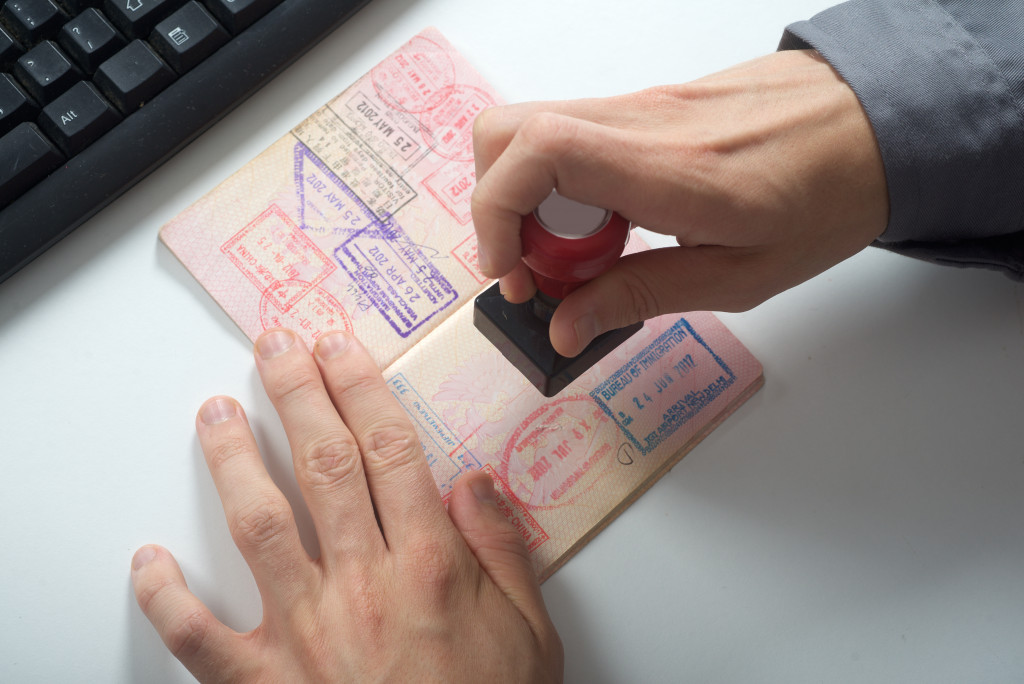Working in a foreign country can be a fantastic experience. Living and working in a new culture allows you to experience different customs, meet new people, and learn new things. Many people also do it to earn a good living. But before you take the plunge and start working in a new country, there are some legal considerations you need to consider. Here are some of them.
1. Check if you need a work permit
Most countries require a work permit before you can legally start working. Getting a work permit can vary from country to country, so it’s essential to research and determine the requirements. Sometimes, you may need to get a visa before applying for a work permit.
Some countries like the United States have special work visa programs for specific jobs. If you’re considering working in the US, you can learn more about the different types of work visas on the US Citizenship and Immigration Services website. In the UK, a company must apply for a sponsorship licence if they want to sponsor someone from outside the European Economic Area (EEA) to come and work for their company.
Depending on the country you’re planning to work in, you may also need to prove that you have the qualifications and experience for the job. For example, in Australia, you need to have your qualifications and experience assessed by the relevant Australian authority before applying for a work permit.

2. Find out about tax and social security obligations
When you start working in a new country, you need to make sure you’re paying the correct amount of tax. In most countries, you’ll be required to pay income tax on your earnings. The tax rate can vary depending on the country and your income. For example, the federal income tax rate in the US is currently 20%, while in the UK, it’s 45%.
If you’re self-employed, you may also need to pay other taxes, such as social security contributions or value-added tax (VAT). Some countries have tax treaties with others, which can affect the amount of tax you must pay. For example, if you’re a US citizen working in the UK, you may be able to claim a foreign tax credit for the taxes you’ve paid in the UK.
Before you start working overseas, you must know all the different taxes you may be liable for to budget accordingly. Failure to pay the correct tax can result in hefty fines or even a prison sentence in some countries.
3. Know your employment rights
Because employment laws vary from country to country, you must know your rights before starting working in a new country. These rights include the minimum wage, vacation days, and sick leave. For example, the federal minimum wage in the US is currently $7.25 per hour. In the UK, the minimum wage depends on age and whether you’re an apprentice.
Your employment rights will also depend on your contract of employment. This document outlines the terms and conditions of your employment, including your salary, working hours, and job duties. It’s essential to read your contract carefully before signing it to know what you agree to. You may even hire a lawyer to help you understand the agreement.
But even if you don’t have a contract, you still have certain rights under the law. For example, in most countries, you’re entitled to paid leave if you get sick or have to take care of a family member. Some countries also have laws that protect pregnant women and new parents from discrimination in the workplace.
4. Make sure your qualifications are recognised
Your qualifications may not be recognised in a foreign country. For example, a US law degree may not be valid in the UK. This means you may not be able to practise law in the UK even if you have a law degree from a US university. This is because each country’s educational systems and professional qualifications differ.
Before you move to a new country, find out whether your qualifications will be recognised. You can do this by contacting the relevant professional body in the country you’re planning to work in. For example, if you’re a lawyer, you should contact the Law Society in the country you’re planning to work in.
You should also check whether you need to take any additional exams or courses to practise in your chosen profession. For example, to practise law in the UK, you must pass the ‘Solicitors Qualifying Examination’. This is in addition to your law degree.
Working in a foreign country can be a great way to further your career and earn some tax-free income. However, there are a few things you need to be aware of before you take the plunge. Those mentioned above are just a few things you need to consider before working in a foreign country. So, do your research and make sure you’re prepared before you make a move.
